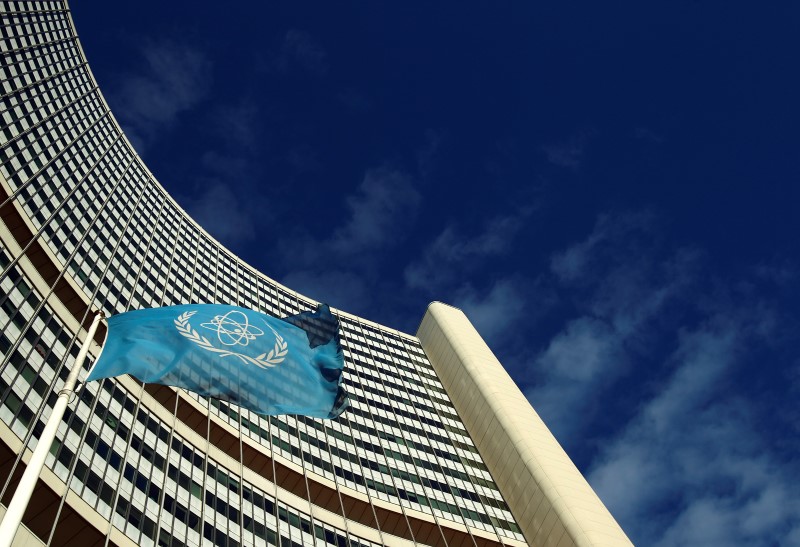By Shadia Nasralla
VIENNA (Reuters) - Iran has still not addressed specific issues that could feed suspicions it may have researched an atomic bomb, a U.N. watchdog report showed on Thursday, potentially complicating efforts by six powers to clinch a nuclear deal with Tehran.
Iran and U.S. negotiators will resume talks over Tehran's nuclear programme in Geneva on Friday to narrow remaining gaps aimed at ending a 12-year standoff with the powers, Iran's state news agency IRNA reported.
The confidential report by the International Atomic Energy Agency (IAEA), obtained by Reuters, said Tehran was continuing to withhold full cooperation in two areas of a long-running IAEA investigation that it had committed to giving by August last year.
"Iran has not provided any explanations that enable the agency to clarify the outstanding practical measures," the IAEA said, referring to allegations of explosives tests and other activity that could be used to develop nuclear bombs.
Western diplomats have viewed such stalling as an indicator of the Islamic Republic's unwillingness to cooperate fully until punitive sanctions are lifted in talks with the United States, Russia, China, France, Germany and Britain.
The IAEA document about the U.N. inquiry, which has run parallel to the big power talks, was issued to IAEA member states only weeks before a deadline in late March for a framework agreement between Iran and the powers.
Iran's IAEA envoy said the report attested to Iranian cooperation with the Vienna-based agency to address doubts about its nuclear programme, rejecting "baseless claims" about weapons studies.
"Repeating such baseless claims will not add to the IAEA's credibility," Ambassador Reza Najafi told the Iran's Students News Agency ISNA.
The seven countries have imposed a June 30 deadline on themselves for a final settlement. Iran denies any intention of seeking atomic weapons, saying its nuclear energy programme is aimed at generating electricity only.
The deal sought by the powers would have Iran accept limits to its uranium enrichment capacity and open up to unfettered IAEA inspections to help ensure it could not put its nuclear programme to developing bombs. They also want Iran to resolve all IAEA questions to build trust in its nuclear aspirations.
In return, Iran would see a lifting of international trade and financial sanctions that hobbled its oil-based economy.
IAEA Director-General Yukiya Amano and Iranian senior nuclear negotiator Abbas Araqchi will meet in Vienna next week, both sides said. "In his meeting with Amano, Araqchi will discuss ... future cooperation needed between Iran and the IAEA in the framework of a possible final deal," Najafi told ISNA.

A senior diplomat said all issues in the inquiry barring possible military dimensions (PMD) to Iran's nuclear activity were being tackled well, but "with respect to PMD, progress is very slow, if there is any progress at all at this point in time."